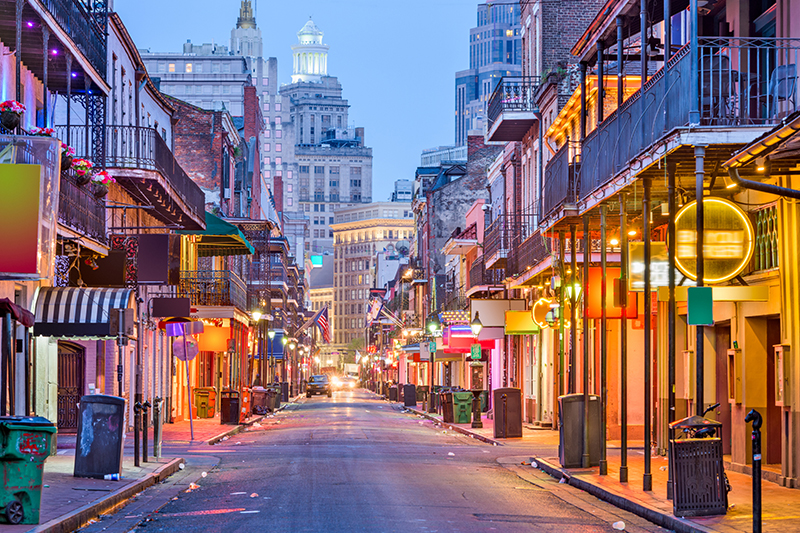New Orleans, and the state of Louisiana of which the city is a part, does not have a global warming problem. It has a political-cultural problem that not only resists progress, but appears to revel in doing so. The state is captive to a crony political system that has changed little since the days of Huey Long in the 1930s.
Now, after Hurricane Ida’s visit, federal taxpayers once again will be on the hook for the Pelican State’s failure to prepare.
If Hurricane Katrina in 2005 was supposed to have been a wakeup call for the Crescent City, its leaders refused to answer the phone. On August 29, Hurricane Ida ripped past the city, taking out critical electrical grid infrastructure that plunged the entire city into darkness (some areas remain without electricity even now).
Despite having failed repeatedly over the years to upgrade their power system to standards beyond those of the 1970s, government officials and energy company representatives continue to blame the “unforeseeable” ferocity of the storm for the extensive damage it caused to the power grid.
In New Orleans, “unforeseeable” means “eyes closed.”
Louisiana’s deplorable infrastructure is neither a time issue, nor a money one. The same officials responsible for lagging infrastructure upgrades will be the first lining up to beg Uncle Sam for billions in taxpayer relief. Of course, this plea is more like a strong-arm ransom. Presidents and members of Congress know that refusing, or even hesitating to open the federal checkbook will incur calls of racism (as happened during the Katrina relief effort 15 years before). Billions will be spent; billions will disappear; and, history will repeat itself.
Not surprisingly, New Orleans played a pivotal role in the federal government initially assuming responsibility for natural disasters many decades ago. The federal response to the Great Mississippi Flood of 1927, which devastated New Orleans and the Mississippi delta region, was the first time significant federal resources were expended for a specific geographic area recovering from a serious natural disaster.
Prior to the 1927 flood, costs of disaster recovery and other assistance was seen primarily as the responsibility of those affected, charitable organizations, and local governments. Grover Cleveland best summarized this approach when vetoing a federal relief bill in 1887, saying the “friendliness and charity of our countrymen can always be relied upon to relieve their fellow-citizens in misfortune,” while warning “federal aid in such cases encourages the expectation of paternal care on the part of the Government.” Prescience, indeed.
What incentive is there for New Orleans to expedite infrastructure improvements when federal taxpayers can be tapped year after year for rebuilding but without demanding verifiable modernization in return?
Also hampering New Orleans’ recovery is a broader sentiment among global warming-minded Leftists that focuses exclusively on the future, and what can be done to change it, as opposed to the more difficult task of fixing the present. It is far easier to sit back on one’s self-proclaimed laurels and bark about global warming being the cause of New Orleans’ disaster loop, as doing so shifts blame to external actors and “global efforts for change,” over which they have no control.
For lazy and corrupt government officials, this cop-out provides the perfect cover to respond to the consequences of their incompetence. After all, when you blame Mother Nature, there is no rebuttal to defend against.
This has been the strategy employed by state and local officials for the last 15 years. However, as any visitor to New Orleans knows, the stench of garbage and sewage, and the painful visages of poverty are a constant presence in the French Quarter and elsewhere, not the temporary inconvenience of another disruptive disaster.
Such unpleasantries reflect the perpetual incompetence and corruption of a government that wrings its hands and surrenders to whatever comes next, instead of actually preparing for it. So long as federal dollars keep feeding this delusion of colorful grit and decay, residents, visitors, and taxpayers alike will be forced to continue filling the coffers of a corrupt system.
The expensive aftermath after Hurricane Ida is certain to illustrate once again the political system described to me by a fellow United States Attorney in the late 1980s — a system where “people don’t just expect corruption on the part of their elected officials, they demand it.” In the Big Easy, it comes rolling back in.























